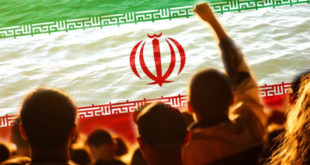BAGHDAD (Reuters) – The U.S. military will carefully manage the growth of neighborhood police units credited with helping to curb violence in Iraq, aiming ultimately to move many into public work roles, a spokesman said on Thursday.
Rear Admiral Gregory Smith said about 50,000 Iraqis had been trained and were manning “concerned local citizens” checkpoints in their own communities and being paid by the U.S. military.
Smith said the program would be allowed to grow by another 10-15 percent, although there was no absolute cap on the number.
“It’s a general guidance, not a final ceiling,” he said.
“We have been looking at making certain that we have a measured approach as we move into 2008,” Smith said in a telephone interview.
The 50,000 at work are drawn from about 77,000 who have registered with the U.S. military for the security initiative.
The predominantly Sunni Arab units, known by the military as “CLCs”, emerged from a model which developed in western Anbar last year and has since spread to Baghdad and beyond.
Sunni Arab sheikhs in Anbar, tired of Sunni Islamist al Qaeda’s indiscriminate killing, began forming young men into tribal police to patrol their own neighborhoods.
U.S. commanders backed the “Awakening” movement as they tried to bring down violence which threatened to tip Iraq into sectarian civil war, training and paying the local police units.
Iraq’s Shi’ite-led government has at times appeared lukewarm about the rapid growth of the movements, with many Shi’ites fearing that they would become unaccountable militias operating under the pretext of fighting al Qaeda.
A U.S. general in Iraq said on Monday that the Iraqi government wanted to start paying the security units in a move that would indicate growing support for the units. The military pays each patrol member between $250-$300 a month.
The New York Times newspaper on Thursday quoted Iraqi government spokesman Ali al-Dabbagh as saying it was Iraq’s responsibility to pay them and that “the loyalty of these people should be to Iraq”.
Some neighborhood patrol members once belonged to Sunni Arab insurgent groups but U.S. commanders say all are screened through extensive security databases and those who have attacked U.S. or Iraqi forces or committed crimes are weeded out.
Smith said about 200 of the groups had been set up so far, a rise of about 20 on previously available figures.
“The government of Iraq in 2008 is to transition this into their program,” Smith said.
Lieutenant-General James Dubik, the U.S. officer in charge of training Iraqi security forces, told Reuters on Sunday that talks had begun between the military, U.S. embassy officials and the Iraqi government on the future role of the groups.
The talks would look at jobs for neighborhood patrol members in other areas like public works, transportation and agriculture once the need for added security subsided.
Smith said pilot retraining programs would be set up soon.
 Eurasia Press & News
Eurasia Press & News


